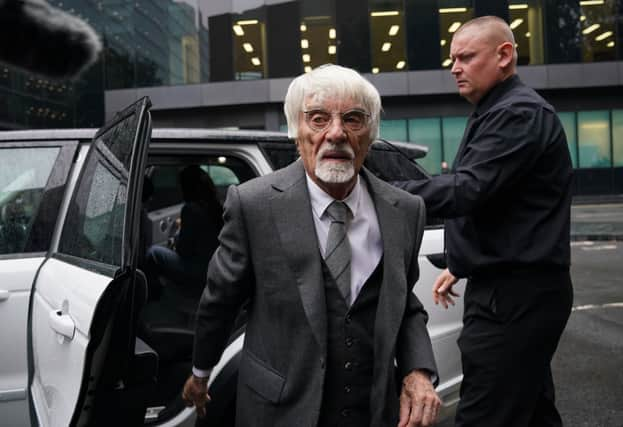Bernie Ecclestone fraud: ex-F1 boss sentenced to 17 months in prison suspended for two years


Businessman Bernie Ecclestone has been sentenced to 17 months in prison suspended for two years after he pleaded guilty to a fraud charge at Southwark Crown Court earlier today (12 October).
The former Formula One Group chief executive was charged with fraud by false representation after he was accused of not disclosing more than £400m worth of overseas assets to the UK government. He later admitted the offence when he appeared in court today. He has agreed to a civil settlement of £652,634,836 in respect of sums due to HMRC over the course of 18 years.
Advertisement
Hide AdAdvertisement
Hide AdChristine Montgomery KC, Ecclestone's defence barrister, said that her client "bitterly regrets the events that led to this criminal trial”. Sentencing judge Mr Justice Bryan said: “Your offending is so serious that neither a fine or a community order would be appropriate. It is rightly acknowledged that the custody threshold has been passed.”
While attending today, the court heard that business magnate Ecclestone, 92, had said "no" to HMRC when he was asked if he had links to any other trusts "in or outside the UK". Prosecutor Richard Wright KC said: “That answer was untrue or misleading. Mr Ecclestone knew his answer may have been untrue or misleading. As of July 7 2015, Mr Ecclestone did not know the truth of the position, so was not able to give an answer to the question.
"Mr Ecclestone was not entirely clear on how ownership of the accounts in question were structured. He therefore did not know whether it was liable for tax, interest or penalties in relation to amounts passing through the accounts. Mr Ecclestone recognises it was wrong to answer the questions he did because it ran the risk that HMRC would not continue to investigate his affairs. He now accepts that some tax is due in relation to these matters.”
